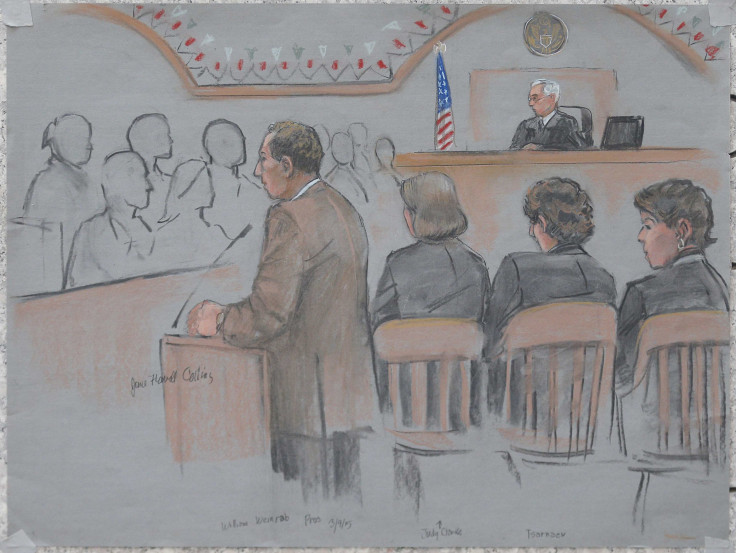Boston Marathon Bombing Trial: Tsarnaev Defense Admits Dzhokhar's Guilt, Argues Brother Influenced Actions

The leader of Boston Marathon bombing suspect Dzhokhar Tsarnaev’s defense team admitted Wednesday that he carried out the attack that killed three people and injured hundreds on April 15, 2013. Rather than rely on the law's presumption of Tsarnaev's innocence as the trial begins, attorney Judy Clarke said the 21-year-old followed his older brother Tamerlan, whom the defense claims was the true catalyst behind the bombings.
“It was him … the evidence will not establish and we will not argue that Tamerlan put a gun to Dzhokhar’s head or that he forced him to join in on the plan, but you will hear evidence about the kind of influence that this older brother had,” Clarke said in her opening statement, according to CBS Boston. “It was Tamerlan who self-radicalized. It was Dzhokhar who followed,” she added, according to the Boston Globe.
The Tsarnaev brothers purportedly planted two improvised explosive devices near the Boston Marathon’s finish line, and then fled the scene amid the chaos caused by the subsequent detonations. The attack triggered a massive manhunt, during which authorities locked down the city of Boston and several suburbs. Police in Watertown, Massachusetts, killed Tamerlan Tsarnaev, 26, in an April 18, 2013, shootout, while Dzhokhar -- who was 19 at the time -- evaded arrest for several more hours before he was found hiding in a local resident’s boat parked in a driveway.
Assistant U.S. Attorney William Weinreb, the prosecutor in the Tsarnaev trial, argued in his opening statement that the Tsarnaev brothers were equal partners in a cold-blooded plan to murder as many Americans as possible. “[Dzhokhar] believed that he was a soldier in a holy war against Americans,” Weinreb said. “He also believed that by winning that victory, he had taken a step toward reaching paradise. That was his motive for committing these crimes."
Weinreb pointed to Tsarnaev’s actions after the bombing, such as a trip to a Whole Foods store to purchase milk, as evidence that he felt no remorse for his participation in the attack, according to CNN. The prosecutor also mentioned Tsarnaev’s activity in jihadist Internet forums and the message he wrote for authorities on the boat, in which Tsarnaev explained that the bombings were retaliation for U.S. actions against Islam.
Tsarnaev pleaded not guilty to more than 30 federal charges, including conspiracy to use a weapon of mass destruction. Conviction on any one of 17 of those charges could result in the death penalty. The trial, which began after a nearly two-month jury selection process, is expected to last through June.
© Copyright IBTimes 2025. All rights reserved.




















